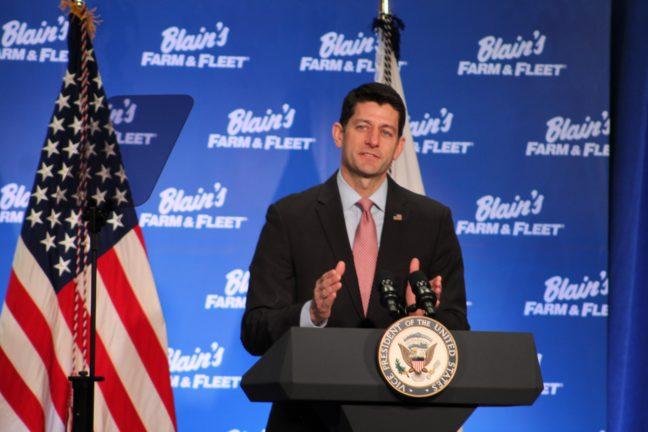On April 11, Speaker of the House Paul Ryan announced his retirement. He intends to serve the remainder of his term, but Wisconsin Republicans will have to find a candidate to challenge Democrat Randy Bryce — it won’t be Cathy Myers — in the November election. Even if the Republicans hold Wisconsin’s first district that month, Ryan’s departure is a loss for the state’s influence, the Republican Party as a whole and conservative ideology.
Ryan leaves his post with one major accomplishment. A Reaganite Republican, he also wanted to implement a massive supply-side tax cut to boost the American economy. He got just that when he signed the Tax Cuts and Jobs Act at the end of last year. The new law has been a big victory for the American people. The Congressional Budget Office revised its economic outlook, believing GDP growth in 2018 will be 3.3 percent rather than 2 percent as previously projected. The job reports keep looking good.
Ryan had other legislative achievements, including an increase in military spending. Additional spending will help maintain American power across the globe with the construction of 14 new ships, 287 new aircraft and upgrades to 261 tanks. There’s also a 2.4 percent pay raise for troops.
Unfortunately, a lot of legislation that did pass in the House of Representatives was stalled in the Senate. While Ryan genuinely wanted to retire to spend more time with his family, his retirement is likely out of frustration. Ryan never wanted to become speaker, but when he finally agreed to take the job — he wanted to take action. Then when the Republicans finally maximized their power, a number of legislative priorities hit the breaks.
The legislation Ryan worked to pass included Kate’s Law, which requires a mandatory minimum prison sentence of five years for any undocumented immigrant convicted of illegally re-entering the country after deportation.
President Donald Trump has talked about wanting more infrastructure spending and Ryan helped with his support for the Cross-Border Energy Infrastructure Act, which streamlines the process of reviewing pipelines. The problem has been the Senate, where a slim Republican majority led by Mitch McConnell. Most of the legislation that has passed the House of Representatives has stalled there.
The loss of Paul Ryan means the U.S. lost a crucial fighter for entitlement reform. It is entitlement programs that will break the back of the federal government. Cutting the military budget may make the world more dangerous, but it’s still discretionary spending.
Nondiscretionary spending on Social Security, Medicare and Medicaid is spiraling out of control.
With Paul Ryan announcing retirement, Democrats and Republicans gauge potential of ‘blue wave’
Ryan, a policy wonk, offered solutions to the long-term spending problem, but they never got anywhere because his enemies attacked him as an enemy of the poor and the elderly — even though Ryan actually had a proposal to reduce poverty. His allies realized how politically unpopular the reforms were, so they wouldn’t touch them and kicked the can down the road.
Ryan’s retirement is being celebrated by Democrats, but the idea that Ryan was ever vulnerable is simply absurd. He has managed to survive previous years of blue waves. The latest Marquette Law School poll shows that 46 percent of Wisconsinites have a favorable view of him while 39 percent do not.
His main opponents weren’t anything to worry about. There is no way Paul Nehlen could’ve defeated Ryan. Bryce wasn’t a factor either, even if he and the Democrats think so. Ryan’s campaign war chest was massive and he led in a poll with 55 percent to Bryce’s 34 percent.
This will likely not be the end of Paul Ryan’s political career. When his kids grow up, he will have more time for politics. This doesn’t mean he will return to the House of Representatives. Perhaps a run for governor or Senate will interest him — or even maybe the presidency. Whatever his future holds, Congress needs to remember his vision of fiscal responsibility if it ever wants to tackle the problem that will bankrupt the U.S.
John Graber ([email protected]) is a senior majoring in history and political science.














